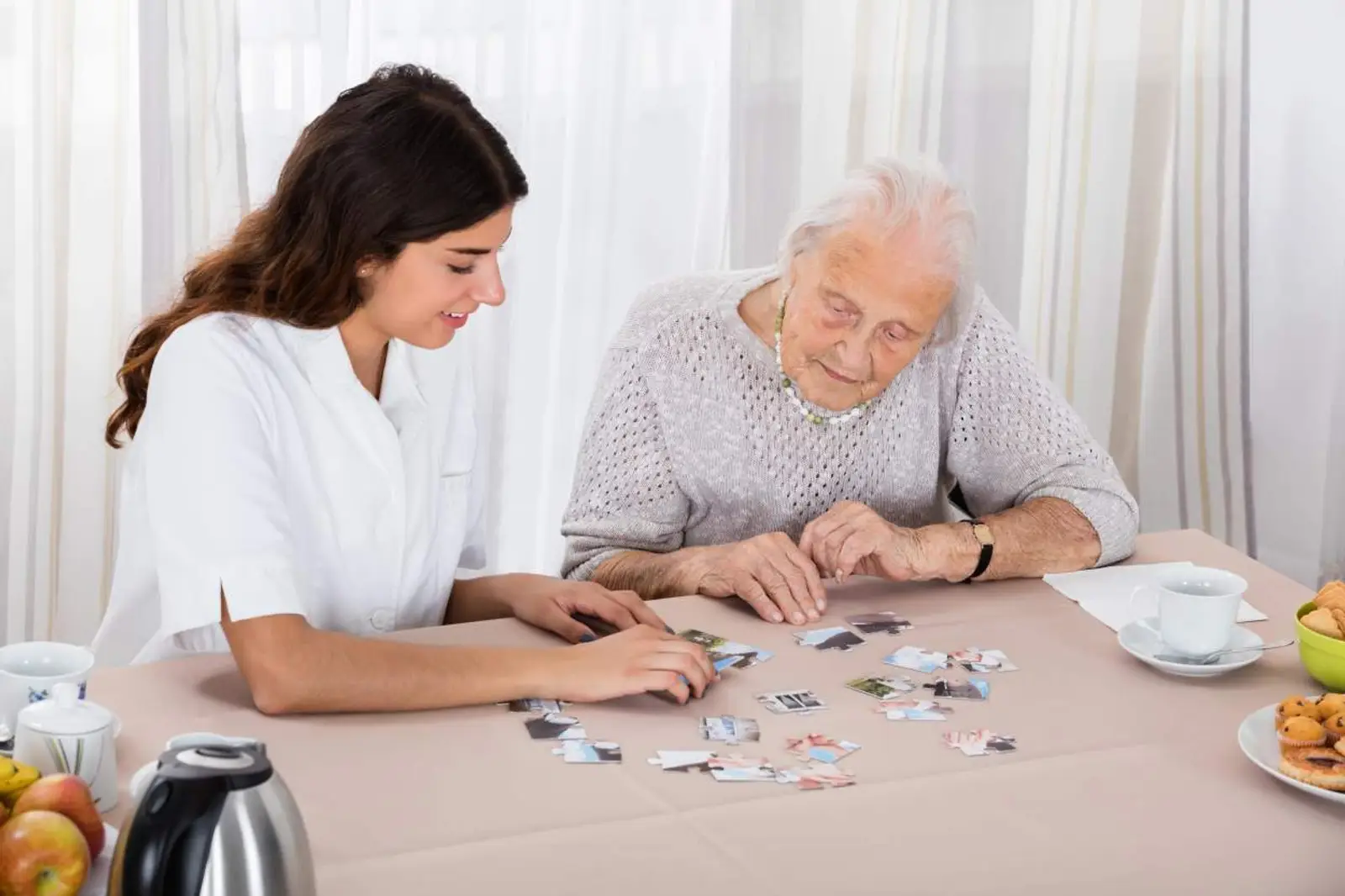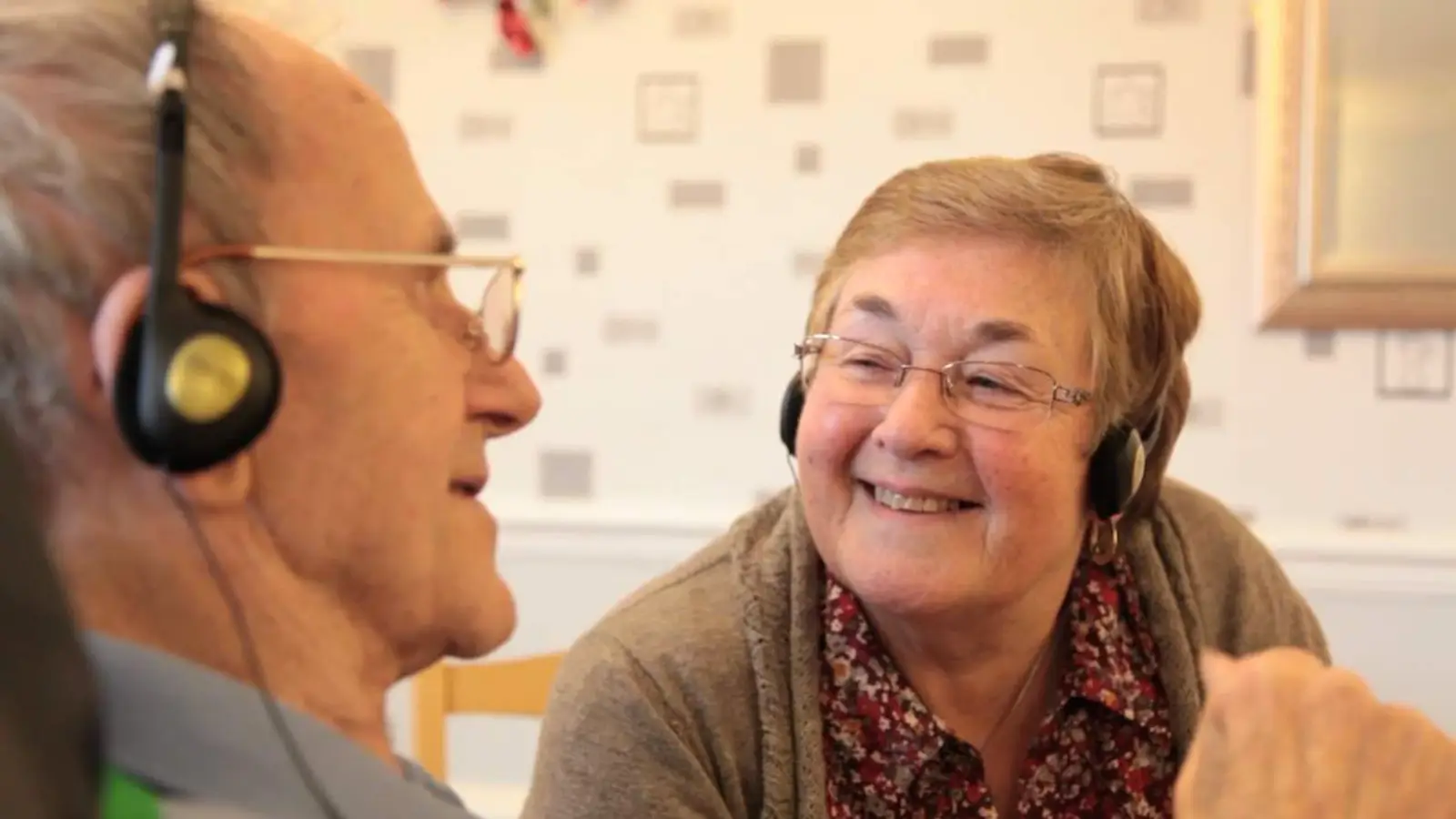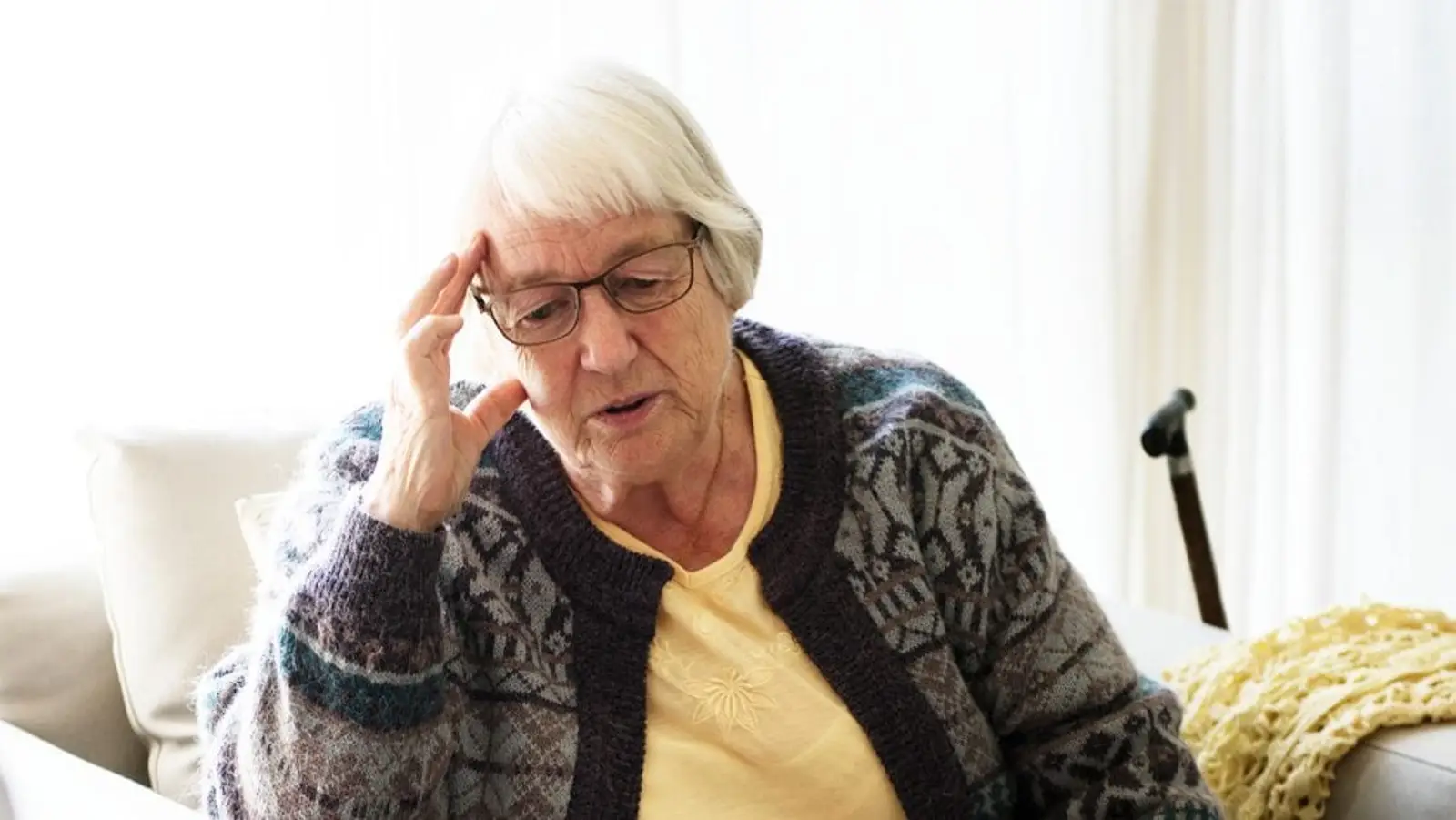16 Stimulating Dementia Activities To Try With Your Loved One
12-minute read | 16/07/2025

Editorial Contributor

It can be difficult finding the time to think of new activities daily, especially if you are a full-time live-in caregiver. Here are sixteen stimulating activity suggestions for those living with dementia and Alzheimer’s.
For those living with certain health conditions, such as dementia and Alzheimer’s disease, engaging in stimulating activities is key in preventing feelings of frustration and boredom. Whether your loved one is cared for by you, or they have a personal live-in caregiver, it’s crucial to provide engaging activities.
Activities that stimulate those living with dementia and Alzheimer’s have a lot of positive benefits, such as boosting their general wellbeing and helping lower feelings of depression, irritability and anxiety.
When planning activities, keep in mind they should –
- Make them feel motivated, engaged and happier
- Create feelings of productivity
- Help them to engage in connecting emotionally with others
- Allow for self-expression
- Ensure some of the activities allow plenty of interaction with others
- Trigger positive memories and encourage them to reminisce on life experiences
1. Get out and about
Many carers find those living with dementia and Alzheimer’s complain of feeling bored as they aren’t getting out and about enough. There are some simple activities you can do together with your loved one to prevent feelings of anxiety and depression. Spending time outside the house can provide them with a sense of purpose and reduce specific behavioural issues, such as irritability and poor sleep patterns.
You might like to try the following –
- Watch local sporting events
- Visit a shopping centre
- Go to a museum
- Take a short day trip
- Spend some time in a park
- Stop by their favourite local cafes or restaurants
2. Exercise and physical activity to keep fit
Staying active is essential, both physically and mentally for those living with dementia and Alzheimer’s. The benefits of keeping active include increased feelings of positivity, a lowered risk of developing depression, reduced restlessness during the night and help with regulating their sleep.
Outdoor physical activities might include:
- Going for a bike ride – depending on their fitness levels
- Local walks around the park or neighbourhood
- Swimming
- Fishing
Indoor physical activities might include:
- Seated exercises – e.g. clapping underneath the legs or bicycling the legs
- Standing up and moving about as much as possible
- Dancing
Be sure to check with local swimming pools or fitness centres as they usually offer workshops or exercise groups on certain days for those living with dementia and Alzheimer’s.
3. Discover nature
Get some fresh air and spend some time exploring nature together. Your loved one will enjoy getting outdoors, especially if they love seeing wildlife and exploring new places. There are also significat health benefits, such as getting in their daily exercise and boosting general wellbeing.
Perhaps try one of the following stimulating activities –
- Gardening
- Visiting local gardens and parks
- Try bird watching at a local nature reserve
- Photography – taking simple photos of flowers and plants
- Explore nearby farmers markets
- Outdoor events – depending on the time of year, check with your local community about any upcoming suitable events
If your loved one’s condition is preventing them from leaving the house, consider watching TV shows or documentaries that allow them to discover nature from the comfort of their own home.
4. Make a memory box
Creating a memory box is a great way to stimulate your loved one’s memories. At times they may experience feeling agitated, this is when looking through a memory box can help with calming them down. It’s important to remember that some days your loved one might not have any interest in leaving the house, and that’s okay. This is when you could try giving them a quiet activity at home, such as browsing through a memory box. You can find step by step instructions on how to make a memory box here.
5. Try music therapy

The majority of us love listening to music, and this rarely changes after a dementia or Alzheimer’s diagnosis. Music therapy is an excellent way to promote positive behavioural outcomes for people with Alzheimer’s disease or dementia. Listening to music can help trigger fond memories and evoke strong emotional responses.
Consider the following activities –
- Create an Apple Music, Spotify or Youtube playlist of their favourite songs and artists
- Spend time together listening to their favourite music
- Go online and show them the music videos of their favourite band or singer performing live
6. Pet therapy
Pet therapy is an excellent activity for stimulation, especially if your loved one enjoys spending time with animals. Pets provide a lot of benefits, such as lowering blood pressure and reducing stress levels, while also boosting feelings of calm and happiness. Pet therapy is a fantastic sensory experience and may also relieve symptoms of anxiety and depression.
You might want to try the following –
- Visit a local animal shelter to take a look at the animals
- Take your loved one to a local farm
- Check if there are any nearby pet therapy organisations
- If you have any family or friends with a well-behaved pet, consider inviting them over
7. Cook together
Preparing simple meals together is a great way to spend quality time talking with each other. Cooking is also a great practical activity for your loved one, while offering the reward of a tasty meal or snack. Perhaps you could try making their favourite childhood meal, stimulating positive memories of baking with their mother or father.
Here are some simple recipes you might like to try –
- Fruit kebabs: Chop up a selection of seasonal fruit and thread them onto wooden skewers.
- Make sandwiches: Start with spreading the bread with butter and then add their favourite toppings.
- Decorate pizzas: Layout ready made pizza dough and cover with passata sauce, then simply let your loved one choose their favourite toppings. Heat the oven to 240C/fan or 220C/gas. Pop into the oven and cook for around 8-10 minutes, until crisp.
- Smoothies: This is an excellent option for those with swallowing issues, as dementia can sometimes cause these problems. All you need is a blender, your loved one’s favourite fruits and your chosen liquid to blend all the fruit.
If your loved one’s condition is at a stage where they are unable to participate in cooking, they might still enjoy sitting and chatting with you while you cook.
8. Reminisce about the past
For those living with dementia, their long-term memory often lasts the longest, meaning reminiscing about the past is a great activity. It can be stimulating for your loved one to engage in conversations about their lives and the perfect opportunity for you to know more about them.
Activities for reminiscing include –
- Watching old family videos
- Interviewing your loved one using a video recorder and asking questions about their life
- Browsing through family photo albums or perhaps trying to create a new one
- Chat with them about their childhood memories, their family and their life in general
- Ask them about their most treasured memories

9. Read their favourite books
If your loved one is no longer finding television stimulating, reading books is a great alternative. If your loved one used to enjoy reading, but unfortunately they now struggle to, you could always read their favourite book to them. If you’re struggling to find the time to read with them, try setting up an audiobook or a recording of their favourite books so they can listen to it as many times as they like.
10. Talk about their favourite topics
Something as simple as taking the time to sit with your loved one and engaging in stimulating conversation about their favourite topics can be so rewarding. The positive discussion will have many benefits, such as helping your loved one to feel valued and allowing them to reconnect with the past.
Conversation topic suggestions –
- Favourite sports teams
- Watch or listen to their favourite singers
- Discuss public figures they’re interested in
- Share jokes
- Talk about their best memories
11. Arts and crafts
Whilst your loved one may not be very artistic or creative, participating in arts and crafts can be beneficial and help keep them engaged. The main benefit of this activity is it allows your loved one to express themselves in a different way while also discovering their creative side.
Consider trying these stimulating arts and crafts activities –
- Creative colouring
- Make handmade cards Christmas, birthdays etc.
- Jigsaw puzzles
- Knit
- Paint
- Homemade playdough
- Make a scrapbook
12. Sing!
Singing can help the elderly to feel happier and more relaxed by expressing deep emotions, enabling them to release feelings of stress. There are certain physical benefits from singing as it is considered a cardiovascular activity; other benefits include lowering the perception of pain and reducing symptoms of depression. Sing your loved one’s favourite songs to help improve their memory and overall mood.
13. Learn to play an instrument
If your loved one has an interest in music, perhaps they might like to consider learning a new instrument. Playing an instrument is an excellent way to work on concentration, coordination and memory. It’s also a great way to help maintain strong cognitive skills.
14. Fun and simple activities
Simple yet fun activities are great, especially when choosing activities that are familiar to your loved one. These activities can encourage your loved one to feel productive and are usually easy to follow.
Perhaps you might like to try the following activities –
- Crosswords
- Board games they are familiar with
- Afternoon tea or a picnic
- Puzzles
15. Easy at-home activities
Perhaps you’re struggling to think of new and innovative ideas for your loved one’s daily activities, and that’s okay, there are plenty of easy activities around the house to provide daily stimulation. These activities are beneficial to helping your loved one feel a sense of accomplishment and gives them purpose throughout the day.
Activities around the house your loved one could try are –
- Sweeping
- Folding laundry
- Wipe the table
- Polish silverware
- Any other easy household tasks
16. Regular visits to local community groups
It’s essential to keep your loved one interacting with others, as long as their condition allows them to do so comfortably. If they have a connection with a local community group, such as a place of worship, a coffee shop or a regular club, it’s vital that they stay connected. If you’re worried about your loved one’s Alzheimer’s or dementia causing issues, it might be worthwhile having a chat with the organisers just so everyone is aware of their condition and to prevent any embarrassment for them.
Don’t give up
There may be times when your loved one doesn’t seem interested in any of the activities that you suggest, but it’s important you don’t give up. Try taking a break and attempting the activity later, or change the activity entirely. Remember to listen to them and find out if there’s anything that can be done to make the activities more enjoyable. Your flexibility and perseverance are key for the success of ensuring your loved one participates in stimulating activities.
Finally, if you are struggling to take care of your loved one living with a diagnosis of dementia or Alzheimer’s disease, you might want to consider live-in care. Elder is the perfect solution if you’re looking for round the clock support. We will ensure your loved one is matched with a compassionate and highly skilled carer, and most importantly, a carer with experience at looking after someone with your loved one’s condition.
If you have any questions about live-in care for your loved one or elderly relative, don’t hesitate to contact one of our friendly care advisors today.





